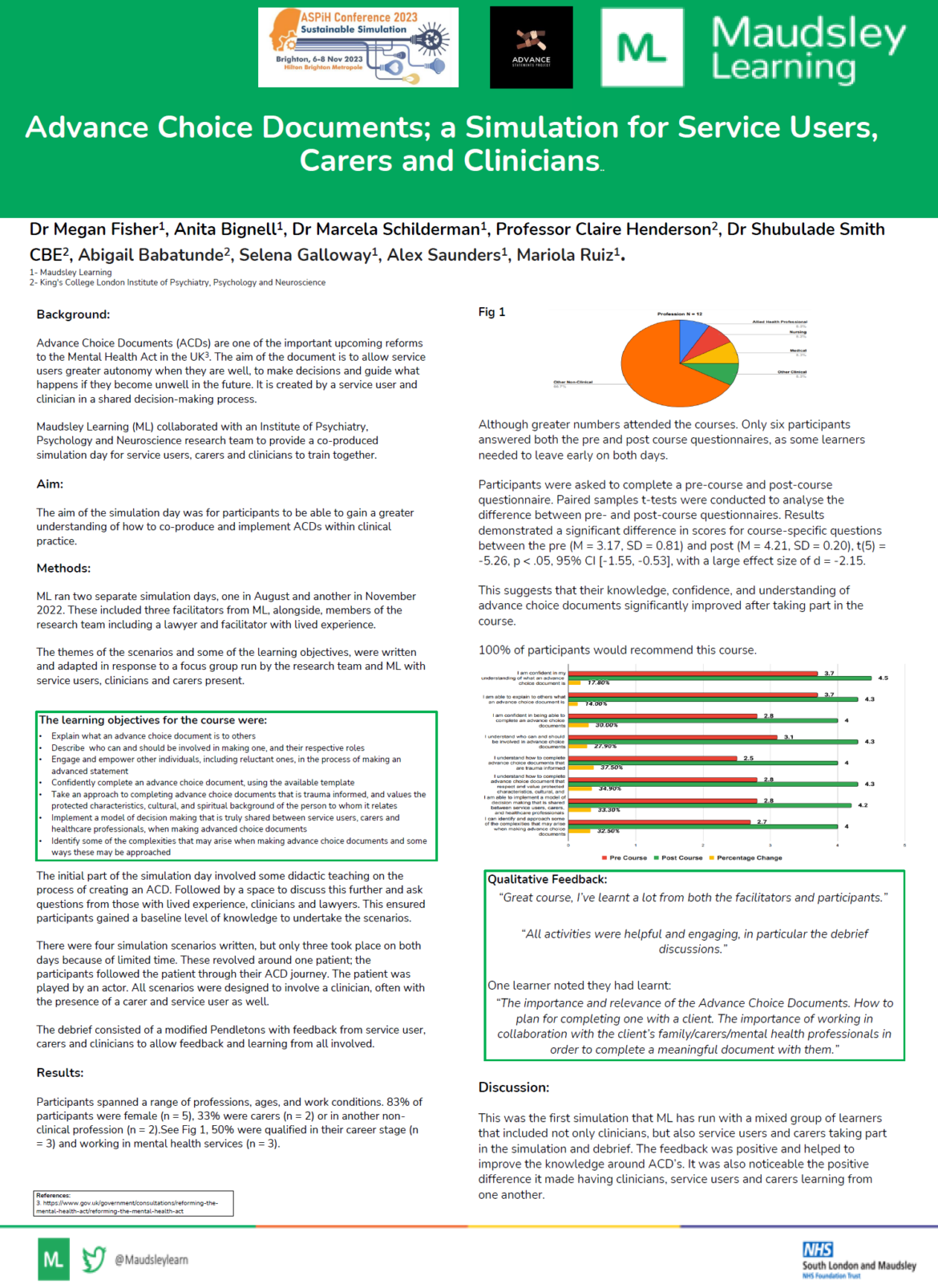This was a simulation course that we ran alongside AdStAC (Advance Statements for Black African and Caribbean People) to help teach clinicians, service users and carers about advance choice documents.
Advance choice documents are one of the important upcoming reforms to the Mental Health Act in the UK. The aim of the advance choice document is to allow service users greater autonomy when they are well, to help make decisions and also guide what happens if they become unwell in the future. It is created by a service user and clinician together in a shared decision-making process.
This was a day long course, with the morning consisting of didactic teaching from a lawyer, members of the research team and a facilitator with lived experience. This allowed for the participants to gain further knowledge around advance choice documents and how to complete one together. Importantly, there was also time and space to allow for all participants to ask questions to build upon the information they had learnt in the teaching.
In the afternoon, there were three sim sessions, following a service user through their advance choice document journey from a discussion around what it is, through to utilising it within an A+E setting. Most of the simulations were written to ensure that a service user or carer or clinician could enter into the scenario; alone or together.
These sessions ran twice and were pilots as part of the research project.
The feedback was generally positive with 100% of people recommending the course and significant difference in scores for course-specific questions between the pre and post course questionnaires (please see the attached poster for details)
This was one of the first simulation sessions Maudsley Learning had run that involved clinicians, service users and carers participating in all three parts of the day; simulations, debriefs and didactic sessions. From a facilitator’s perspective it was noticeable the positive difference it made having clinicians, service users and carers learning from one another throughout the day.
We are hoping to run these simulations again in the future.
